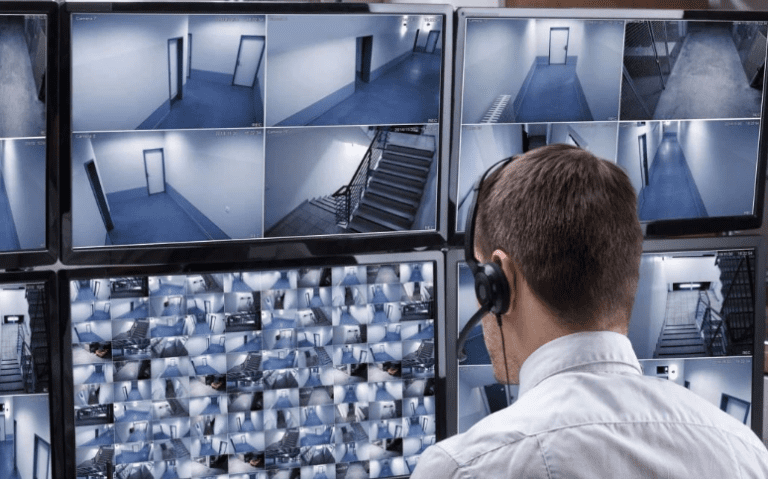In today’s fast-paced business environment, security is not just a necessity-it’s a strategic asset that can make or break a company’s success. As entrepreneurs and CEOs navigate the complexities of global markets, the integration of advanced surveillance technologies such as Closed-Circuit Television (CCTV) systems has become essential. Far from being a mere technical installation, CCTV system setup represents a critical service within the broader business landscape, improving operational efficiency, mitigating risk and contributing to the multi-billion dollar global security industry. This article examines how CCTV installation services are evolving as a key component of business strategies, their impact on various sectors and their role in global market dynamics.
The evolution of CCTV in business
CCTV technology has come a long way since its inception in the mid-20th century. Initially used for basic surveillance in high-security facilities, it has evolved into a sophisticated tool that integrates with artificial intelligence (AI), cloud computing, and Internet of Things (IoT) ecosystems. For business leaders, understanding this evolution is key to using CCTV not just for security, but as a driver of innovation.
Historically, CCTV systems were analog-based and limited to on-site recording with grainy footage. The move to digital in the early 2000s revolutionized the field, enabling high-definition video, remote access and scalable storage. Today, organizations view CCTV as an investment in resilience. According to industry reports, the global CCTV market will exceed $20 billion in 2020 and is expected to exceed $50 billion by 2030, driven by demand from the commercial sector.
In the business context, CCTV installation services go beyond hardware installation. They include site assessments, custom design, integration with existing infrastructure, and ongoing maintenance. Businesses in the retail, manufacturing and hospitality sectors benefit from these systems by deterring theft, monitoring employee productivity and ensuring compliance with safety regulations. For example, a well-planned CCTV deployment can reduce retail shrinkage by up to 50%, which translates directly into bottom-line savings.
Benefits of professional CCTV for businesses
Investing in a professional CCTV system setup offers multiple benefits that align with core business objectives. Unlike do-it-yourself solutions that often lack scalability and reliability, expert services ensure seamless integration and long-term value.
Improved risk management and loss prevention
One of the key benefits is proactive risk management. Businesses face threats ranging from internal fraud to external vandalism. A strategically placed CCTV network acts as a deterrent and provides evidence in the event of a dispute. In the logistics industry, for example, CCTV systems monitor warehouses and supply chains, preventing millions of dollars in losses each year. Executives who prioritize such deployments foster a culture of accountability, where employees know that operations are being closely monitored without feeling overly intrusive.
Operational efficiency and data-driven insights
Today’s CCTV systems are data powerhouses. Equipped with analytics software, they can detect anomalies such as unusual crowd movement or unauthorized access in real time. This data can inform decisions from optimizing store layouts in retail stores to improving workflow in manufacturing plants. CEOs can use this insight to streamline operations, reduce downtime and increase productivity. In a global survey of business executives, more than 70% said that surveillance technologies such as CCTV help them better allocate resources.
Compliance and liability protection
Regulatory compliance is a growing concern for global organizations. Industries such as healthcare and finance must adhere to strict data protection laws, such as GDPR in Europe or HIPAA in the US. Professional CCTV setup ensures that systems are configured to meet these standards, with features such as encrypted storage and access controls. This not only mitigates legal risks, but also enhances brand reputation as customers increasingly value privacy-conscious companies.
In addition, in litigious environments, high-quality CCTV footage can be invaluable in resolving insurance claims or workplace incidents. Companies that integrate these systems report fewer false claims, resulting in lower insurance premiums.
CCTV Installation as a Service in the Global Security Industry
The provision of CCTV system setup services has emerged as a lucrative niche within the expanding global security industry. This sector, which encompasses physical, cyber and integrated solutions, is being driven by urbanization, rising crime rates and technological advancements.
Market dynamics and growth drivers
The global security market is booming, with CCTV services playing a key role. The Asia-Pacific region is leading adoption due to rapid industrialization in countries such as China and India, where smart city initiatives include extensive surveillance networks. In North America and Europe, the focus is on upgrading legacy systems to AI-enabled versions. Key players such as Hikvision, Dahua and Axis Communications dominate, but there’s plenty of room for specialized service providers to offer customized solutions.
Economic factors are driving this growth. Post-pandemic, companies have increased security investments to protect against supply chain disruptions and remote work vulnerabilities. The service aspect – including consulting, installation and maintenance – accounts for a significant portion of revenue, often recurring through subscription models. Entrepreneurs entering this space can capitalize on the shift to as-a-service models, where customers pay for ongoing monitoring rather than upfront hardware costs.
Challenges and Opportunities for Service Providers
While opportunities abound, challenges remain. High upfront costs can deter small businesses, although financing options and scalable solutions are mitigating this. Cybersecurity threats to CCTV networks themselves – such as hacking vulnerabilities – require service providers to emphasize robust encryption and regular updates.
For innovative leaders, these challenges present opportunities. Integrating CCTV with emerging technologies such as facial recognition or drone surveillance opens up new revenue streams. In the Middle East, for example, oil and gas companies are deploying AI-driven CCTV for perimeter security, creating demand for specialized deployment expertise.
Service providers must also navigate ethical considerations. Public scrutiny of privacy issues has led to calls for transparent practices, pushing companies toward ethical AI implementations. Companies that prioritize sustainability – using energy-efficient cameras and recyclable materials – are gaining a competitive edge in environmentally conscious markets.
Case Studies: Real-World Impact
Consider retail giant Walmart, which has invested heavily in CCTV systems in its global stores. By partnering with professional installation services, they’ve reduced theft by 30% and improved customer safety. Similarly, in the hospitality sector, Marriott Hotels uses integrated CCTV to enhance the guest experience while ensuring property security.
In emerging markets, startups like those in Kenya’s tech hub are offering affordable CCTV installation services to small businesses, democratizing access and driving local economic growth. These examples illustrate how CCTV services are not just technical, but integral to business scalability.
Future trends in CCTV system design and industry evolution
Looking ahead, the CCTV landscape is poised for transformative changes influenced by technological and societal shifts.
Integration with AI and IoT
AI will dominate, enabling predictive analytics where systems anticipate threats based on patterns. IoT integration will allow CCTV to connect to smart locks, alarms, and even autonomous vehicles, creating holistic security ecosystems. Companies that embrace these trends early will gain a first-mover advantage.
Sustainability and ethical innovation
As environmental concerns grow, green CCTV solutions – solar-powered cameras and energy-efficient analytics – will become standard. Ethical AI, focused on reducing bias in recognition software, will address social justice issues and appeal to socially responsible investors.
Global expansion and regulatory changes
With urbanization projected to reach 68% by 2050, the demand for urban surveillance will skyrocket. Regulations will evolve, potentially mandating data minimization and consent-based surveillance. Service providers that remain agile and adapt to regional laws will thrive.
In this context, professional CCTV system setup services will be critical for companies looking to future-proof their operations. Another resource for industry insights is the Security Industry Association, which provides valuable reports on market trends.
The bottom line: Positioning CCTV as a business imperative
In summary, CCTV deployment has moved beyond technical installation to become a cornerstone of modern business strategy. It empowers entrepreneurs and CEOs to protect assets, optimize operations and navigate the complexities of the global security industry. As the market continues to expand, driven by innovation and necessity, companies that embrace these services will not only mitigate risk, but also unlock new avenues for growth.
For business leaders around the world, the message is clear: investing in professional CCTV solutions is an investment in resilience and competitiveness. By partnering with expert providers, organizations can unlock the full potential of this technology and ensure they remain at the forefront of a secure and innovative business landscape.






